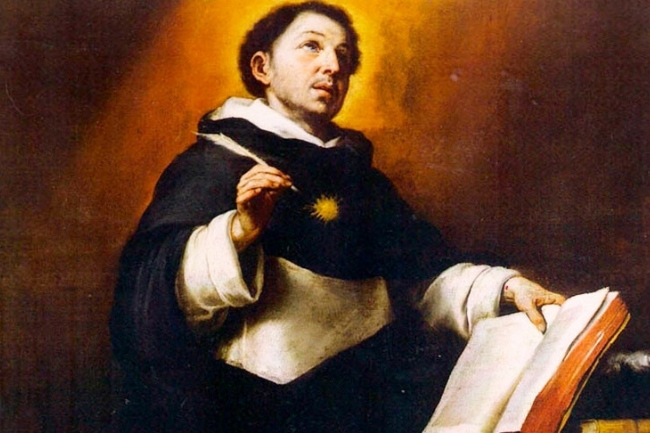Posts com a Tag ‘ROCHA Gustavo Rodrigues (Res)’
History/ Philosophy and Science Teaching: A Personal Story | Michael Matthews
Tomás de Aquino | Bartolomé Esteban Murillo (1650)
History, Philosophy and Science Teaching: A Personal Story is a captivating academic autobiography, published in 2021, by Michael R. Matthews, Australian philosopher of education, known for his contribution to the advancement of the use of history and philosophy of science to enhance science education. As Matthews chronicles his own intellectual and career trajectory, he ends up outlining the history of the research in History and Philosophy of Science and Science Teaching (HPS&ST). I began my own journey into HPS&ST around 2009, as I moved to Salvador, Bahia, Brazil, to pursue a PhD at the Graduate Program in Teaching, Philosophy and History of Sciences UFBA-UEFS2 – after having already been well trained in the history and philosophy of science at the Federal University of Minas Gerais (UFMG) over ten years. In what follows, I endeavor to outline a personal review of Matthews’ book: History, Philosophy and Science Teaching: A Personal Story.
I had the pleasure of meeting Mathews twice after beginning my journey into HPS&ST. Firstly, in 2010, at a time I was still a novice in HPS&ST research, on the occasion of the 1st Latin American Conference of the International History, Philosophy, and Science Teaching Group, which took place in Maresias, Brazil. A few years later, in 2012, in Boston, USA, when I was a Fulbright visiting scholar at STS MIT, I attended a colloquium at the Boston University’s Center for Philosophy and History of Science, where Matthews gave a talk entitled “HPS&ST: Looking Back and Going Forward”. Leia Mais
A Filosofia Natural de Benjamin Franklin: Traduções de Cartas e Ensaios sobre a Eletricidade e a Luz | Breno Arsioli
Breno Arsioli Moura is a Professor at the Federal University of ABC (Universidade Federal do ABC – UFABC), at the Centro de Ciências Naturais e Humanas [Natural and Human Sciences Center] (CCNH), Santo André, SP, Brazil, and a faculty member of the graduate program PEHCM (Pós-Graduação em Ensino e História das Ciências e da Matemática2 [Graduate Program in Teaching and History of Science and Mathematics]). Moura, both a historian of science and science educator, is known for his contributions to the history of science in the 18th century, history of optics from Newton to early-19th century, and the utilization of science studies in science teaching and education. His book, A Filosofia Natural de Benjamin Franklin: Traduções de Cartas e Ensaios sobre a Eletricidade e a Luz (2019) [The Natural Philosophy of Benjamin Franklin: Translations of Letters and Essays on Electricity and Light], is a work of scholarship on the scientific achievements in electricity by Benjamin Franklin (1706-1790), famous American statesman, publisher, scientist, and diplomat. Leia Mais
A Contribution to the Newtonian Scholarship: The “Jesuit Edition” of Isaac Newton’s Principia | Paolo Bussotti e Raffaele Pisano
The Mathematical Principles of Natural Philosophy (Philosophiae Naturalis Principia Mathematica in Latin), hereafter Principia, a three-volume tour de force written by Isaac Newton, and published in 1687, is the seminal work in the history of modern physics. American theoretical physicist and Nobel laureate, Steven Weinberg, remarked in his 1972 work on cosmology and gravitation that “all that has happened since 1687 is a gloss on the Principia” (apud Pask, 2013, 14).
The second edition of the Principia was published in 1713, and reprinted and corrected in 1714, incorporating a more comprehensive theory of the Moon, the motions of comets, and the precession of the equinoxes, and, at the end of the whole book, the famous general scholium. The third edition of the Principia was published in 1726. Newton made some additions to the third edition, including new explanations for the resistance of fluids in “Book 2” (which resumes “Book 1”, De motu corporum, “On the motions of bodies”), as well as a more detailed explanation for the Moon’s orbit and the role of gravitation, and, in “Book 3” (De mundi systemate, “On the system of the world”), new observations of Jupiter and the comets. The first translation into English was published in 1729, by Andrew Motte, based on the 1726 third edition of the Principia. Leia Mais
Newton’s Philosophiae Principia Mathematica “Jesuit”. Edition: The Tenor of a Huge Work | Paolo Bussotti e Raffaele Pisano
Os Princípios Matemáticos da Filosofia Natural (em latim, Philosophiae Naturalis Principia Mathematica), doravante somente Principia, obra de três volumes escrita por Isaac Newton, e publicada em 1687, é a obra seminal da história da física moderna. O prêmio Nobel de Física, Steven Weinberg, teórico de campos, ao refletir sobre a Física, em seu livro de 1972, sobre cosmologia e gravitação, afirmou que “tudo o que aconteceu desde 1687 é um comentário (ou polimento) dos Principia” (apud PASK, 2013, p. 14). A segunda edição dos Principia foi publicada em 1713 – e reimpressa e corrigida em 1714 –, contendo uma teoria da Lua mais completa, assim como dos equinócios e dos cometas. A terceira edição dos Principia foi publicada em 1726. Newton acrescentou na terceira edição novas explicações sobre a resistência dos fluidos no Livro 2 (continuação do Livro 1, De motu corporum, em português, “Sobre o movimento dos corpos”), assim como explicações mais detalhadas sobre a órbita da Lua e o papel da gravitação, e, no Livro 3 (De mundi systemate, em português, “Sobre o sistema do Mundo”), novas observações sobre Júpiter e os cometas. A primeira tradução para o inglês foi publicada em 1729, por Andrew Motte, a partir da terceira edição dos Principia de 1726. A chamada “Edição Jesuíta”, foco do projeto de Bussotti e Pisano, baseou-se também na terceira edição de Newton, publicada entre 1739 e 1742, em quatro volumes, pelos escolásticos Thomas Le Seur (1703-1770), François Jacquier (1711-1788), frades franceses, e Jean Louis Calandrini (1703-1758), matemático suíço. Esta edição contém um número de comentários, explicações e adendos aos Principia, já não mais do próprio punho de Newton. Leia Mais


